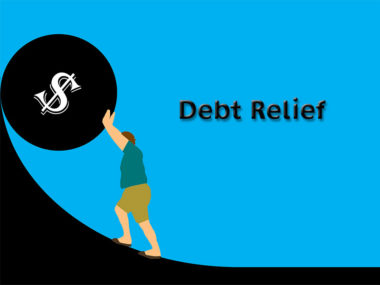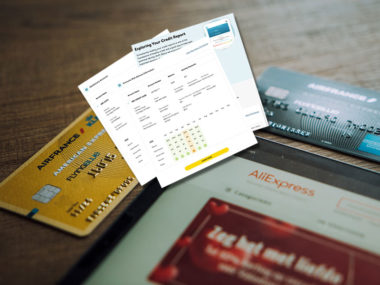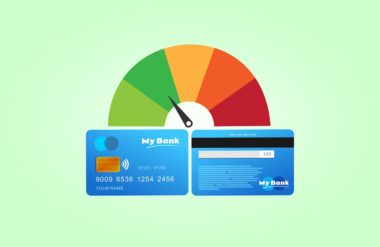Depending on your financial situation, the best debt consolidation method could include transferring credit card balances to a low-interest card, getting a personal loan, applying for a home equity loan, or coming up with a specialized debt-management plan.
Here are tips, ideas, and strategies to help you find the best way to consolidate your debt.
Table of Contents
How to Consolidate Debt
Debt consolidation is a simple strategy that involves concentrating your debt payments into one monthly bill. The idea may be straightforward, but you need to choose the consolidation method that works best for your needs so that you are not making your debt problems more complicated.
Here are the different options for debt consolidation:
Credit Card Refinance
Refinancing your credit card debt involves using balance transfer offers. You transfer your balance from credit cards with higher interest rates to those that have more favorable interest rates and terms. In some cases, you can get an introductory balance transfer offer when you open a new credit card. With these offers, you can get a 0% interest rate for a limited time (usually in the range of six to 18 months). After this time, however, you pay the regular interest rate.
Some cards also offer a fixed rate that may be lower than your current credit card’s annual percentage rate (APR).
This strategy is usually only viable for people with good credit scores. According to credit reporting agency Experian, a “good” credit score is 670 or above, and an excellent rating is 740 or higher (using FICO credit score standards). Also, most balance transfers require paying a fee between 3% and 5% of the amount transferred. Finally, most cards come with a credit limit, so you can only move a specific amount to a new card. If you have a lot of credit card debt, you may not be able to fit it on one card.
Pros:
- You can get one monthly payment.
- You may qualify for 0% interest for an introductory period.
- Interest rates may be lower on a new card.
Cons:
- This strategy is only worthwhile if you have a good or excellent credit score.
- You have to pay balance transfer fees.
- Because of the credit limit, you may not be able to transfer all your debt to one card.
Credit Card Consolidation Loan
A credit card consolidation loan is a personal loan that you use to consolidate your credit card debt into one payment. This loan is unsecured, so you do not have to put up collateral, such as your home or car. You do, however, need to have a good credit score.
With a credit card consolidation loan, you get one simple monthly payment. Ideally, the overall amount of your interest payments will be lower with a consolidation loan than with credit cards. Most of these loans also come with a fixed rate, so you know exactly how much you have to pay. Credit cards usually have a variable rate, so the amount that you have to pay is unclear because of interest rate changes.
Credit card consolidation loans are unsecured, which means that the interest rate may be much higher than a secured loan. Also, you may have to pay fees to set up and administer the loan.
Pros:
- You usually get lower interest rates than with a credit card.
- The fixed rate makes it easy to calculate the payoff period.
- You do not need to put up collateral to secure the loan.
Cons:
- You will get a higher interest rate than a secured loan.
- You need a good credit score to get advantageous terms.
- You may have to pay fees to the lender.
Home Equity Loan
With a home equity loan, you put up your home as collateral for the debt consolidation loan. There are several reasons why someone would opt for this strategy. First of all, because you secure the loan, you can qualify for a much lower interest rate. Also, because this is a secured loan, you may be able to qualify even if you have a lower credit score.
There are a couple of other advantages too. Home equity loans have tax advantages, so you can get a tax break if you opt for this route.
One of the most significant drawbacks of home equity loans is the risk to your property. If you do not make the payments, the lender could foreclose on your home. Because of this, you need to be sure you can repay the loan. Failure to do so could result in repossession. For this reason, those who could have trouble making monthly payments should probably not consider a home equity loan.
Pros:
- You can get a lower interest rate compared to an unsecured loan.
- Home equity loans have tax advantages.
- You can make payments with your regular mortgage payments.
Cons:
- You need to own a home to use as collateral. This option does not work for renters.
- You put your home at risk if you cannot make payments.
401(k) loan
With a 401(k) loan, you use a retirement account instead of your home to secure your consolidation loan. Because these are secured loans, you may qualify for a much lower interest rate. Also, since you are using your 401(k) as collateral, you do not have to risk your home if you cannot make repayments.
At the same time, you are risking your retirement account. A default may not only hamper your retirement savings, but it could also have tax consequences and expose you to early withdrawal penalties.
To use this strategy, you need to have a retirement account, and your employer or bank needs to allow you to use it as collateral. Also, 401(k) loans are more challenging to manage during bankruptcy. All these factors mean that you need to be sure you can pay off your debt.
Pros:
- You can qualify for a lower interest rate.
- You do not need to use your home as collateral.
Cons:
- This type of loan may have tax disadvantages.
- You put your retirement savings at risk.
- You need a 401(k) to qualify.
Debt-Management Plan
A debt-management plan is an alternative to a traditional consolidation method. These plans are often available through nonprofits and credit counseling services. These services help you make a plan to pay off your debts in three to five years. They help you organize one monthly repayment and work with creditors to lower your interest rate in exchange for consistent payments.
This arrangement can be ideal for people in debt, but it comes with some significant drawbacks. First of all, you have to pay fees, and some services have monthly charges as well as a setup fee. Secondly, the terms of the plan may vary. In some instances, you may not be able to open new accounts or get credit or loans during the payoff period.
Pros:
- You create a complete plan to pay off your debt.
- The credit counselor helps you obtain lower interest rates, if possible.
- You may not have to use collateral.
Cons:
- You may not be able to get loans or use credit cards during the payoff period.
- You usually have to pay setup fees and monthly fees.
- Interest rates are still higher than with a secured loan.
Debt Consolidation Calculator
With a debt consolidation calculator, you can calculate payments using different variables and, ideally, find the best option for paying off your credit card debt.
With credit card debt, you enter values for debt amount, interest rate, and monthly payments. Quality calculators will allow you to adjust the monthly payments so you can see how long your repayment term will last based on how much you pay.
AARP offers a debt consolidation calculator that you may use to find the best payoff option for your needs. You can even enter details for several loans at once.
When Is Debt Consolidation Worth It?
Debt consolidation can help you manage and pay off your debt. However, in some cases, it might not be the best option.
You should also only consolidate if the resulting payments are manageable. In most cases, consolidation is a good idea if your debt is less than 40% of your gross income. When calculating your debt liabilities, you should not include your home mortgage.
In almost every case, you should only consolidate debt if your credit is good enough to qualify for lower interest loans or credit cards with 0% APR introductory offers.
Regardless of your choice of debt consolidation method, you also need to ensure that you have the cash flow to make monthly payments.
Debt consolidation loans work best if you have a realistic budget and a plan for full repayment. You can make a plan on your own using a debt consolidation calculator, or you could work with a credit counselor. Some counseling services are inexpensive because they operate as nonprofits.
When Is Debt Consolidation a Bad Idea?
Debt consolidation is not the best option in a few situations.
First of all, if you can pay off your debt in six months to one year, you do not need to take steps to consolidate. You can simply pay off your different debts without having to expose yourself to fees or risks associated with consolidation.
If your credit score is too low, you may have difficulty qualifying for low-interest loans or new credit cards. You should only consolidate your debts if you can obtain a lower overall interest rate than your current accounts offer.
The other extreme is if you have so much debt that you cannot manage a payoff plan. If your debt, except for your mortgage, is more than half your income, then you may not be able to maintain a debt consolidation strategy. In this case, you may need to consider other measures, such as filing for bankruptcy.
Image Source: https://depositphotos.com/





